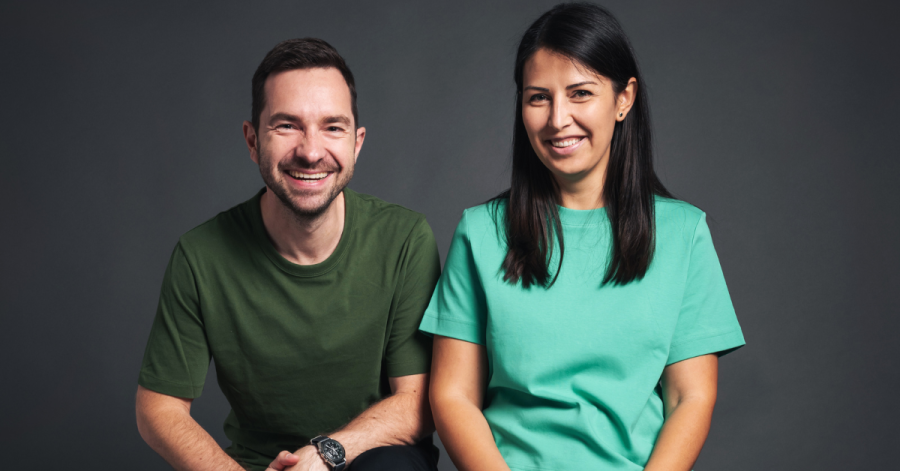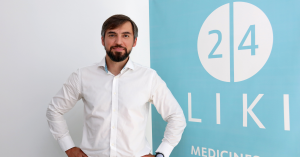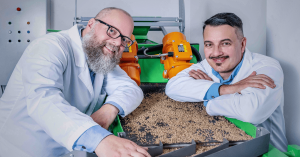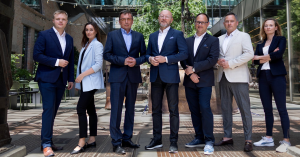Today, future of work startup Pluria announced a backing of $2 million from international investors, led by Southeast European Eleven Ventures, and joined by Germany-based Croton Capital, Romania-based WIT Angels Club, and US-based Phoenix Venture Fund, and business angels.
“During the pandemic, Gabi (Gabriela Draghia, ed.note) and I realized that having a proper workspace is super important. I was literally working from my dressing room, with my laptop surrounded by t-shirts, while Gabi was working from her car, to hide from the construction noise in her building at the time,” Pluria CEO and co-founder Andrei Cretu tells us.
The duo’s challenge, it appeared, was a common one in Bucharest, which convinced them to launch Pluria, a startup designed for a future of work vision, which includes a preference for hybrid and remote work, and thus increasingly distributed teams and an erosion of value in fixed real estate assets for companies.
In a short timespan, Pluria expanded its network to 500 curated workspaces in Latin America (Colombia, Brazil, Mexico, Peru, Argentina) and Europe (Romania, Bulgaria, Spain, Portugal).
Meanwhile, more than 150 companies use the app to keep their remote and hybrid teams connected and engaged. The app is continuously optimized to address the need of managers and teams to ensure motivation, engagement, and effective communication within their hybrid work models.
The Recursive got in touch with the co-founders to hear more about the future of work trends Pluria is spearheading, the workspace-as-a-service model, and their plans with the new funding round.
The Recursive: What first motivated you to bring Pluria to the market?
Andrei Cretu: I think it all started from two apparently contradictory facts. We both realized during the pandemic, that the proper workspace is super important. I was literally working from my dressing room, with my laptop surrounded by t-shirts, while Gabi was working from her car, to hide from the construction noise in her building at the time.
On the other hand, the view of the company workspace is changing. For so long, real estate has been one of the main cost drivers for companies. Right now, only between 10 and 20% of these workspaces are used. From the company’s point of view, space should not be that expensive, not that hard to manage, and not a factor that locks you in mentally and financially. It should be like a SaaS model – workspace-as-a-service – where you pay for exactly what you use. And this leaves room to focus on what really matters: growing the business and focusing on teams.
Gabriela Draghia: I’m adding one more angle to our story, which often gets forgotten among the key priorities in the region, namely that a distributed network of spaces also translates also into carbon footprint reduction. Instead of spending half an hour in a car to get to the main headquarters, employees can actually just walk or take a bicycle to a co-working space near home. So, to an extent, it can also be a CSR-type of activity for companies.
You just closed an international VC round. How was the experience and what differentiated Pluria and helped seal the deal in a relatively dry period for venture capital?
Andrei Cretu: It wasn’t easy, and I don’t think any founder going through fundraising last year or this year can say it is a walk in the park. Fortunately for us, I think we quickly marked a few of the essential checks for a VC.
One is that we are addressing an extremely large opportunity with an international approach that someday, hopefully, will turn us into global leaders. Then, our way of building the intrinsic business model makes it highly differentiable and it allows us to retain competitiveness in the future.
What also really worked out for us is that investors felt not only our excitement for what we’re building and belief in our vision for the future of work, but also a bit of our obsession with solving the critical pain points that companies have in this area. So the fact that we’ve been relentlessly trying to push forward on a multitude of fronts since we started about two years ago was a very positive signal for investors.
What are your plans with the round of investment?
Gabriela Draghia: Our plans are fairly ambitious: consolidating our presence in the two territories where we are active, Latin America and Eastern Europe, while building on the product to better serve the needs of users, with the end goal of connecting teams.
And the reason why we chose to consolidate on these two markets is because this is where we can really make a positive impact for the time being, with the resources that we currently have. Because as a trend, international enterprises tend to scout talent from these two regions, where they can find great talent and affordable prices. But oftentimes, these people are working remotely, and sometimes, they do not have proper working conditions at home, which means they require an alternative to working exclusively remotely.
So bringing in an option such as Pluria, which you can access whenever you need, for the service that you need – either an individual space or a meeting room – eases up and improves the lives of employees. Not to mention the fact that most of them are also struggling with commute times. So instead of spending one hour commuting in Bogota or Bucharest, from one place to another, you can just pick a place next to your home and work from there more productively. And your employer is also going to be happy that you spend one hour working and not commuting.
How would you define your approach to improving the product? What are the key technologies you count on?
Andrei Cretu: Our vision for the roadmap is to create a bottom-up technological context for teams to better connect in a distributed work environment.
Teams are becoming increasingly distributed. With this freedom, there are also challenges: as an individual, you might not always have a nearby workspace where you can be productive. And as a team, you might not have the right space where you can connect and collaborate. The more distributed an organization becomes, the more challenging it is to get people together. This is our North Star, informing our product development and our product roadmap.
Right now, we have a great B2B product, which puts a lot of control and transparency in the hands of the organizations, while providing a good user experience for team members. Going forward, we want to take the product further in the direction of helping teams connect. So, the roadmap will include simple product feature updates, like allowing users to invite a colleague or an external party to join them for a workday.
But it will also go far beyond that by offering not only visibility over where your team is going to be in the next few days, but also some personalized work arrangement suggestions based on analytics. Algorithms will analyze the usage pattern of the team, together with the availability and distribution of the spaces. For instance, if you haven’t met your team in the last month, it could suggest some spaces in your city where you can go and meet your colleagues.
When it comes to technology, we have our vision and whatever is needed to fulfill that, we will use it.
How do you differentiate from competitors in the region?
Andrei Cretu: If we were looking at aggregators of spaces, there are different options in B2C where, for example, as a freelancer, you can get a day pass. In B2B, in certain markets, there are also companies that offer basic intermediation. But those are, in all honesty, quite simple solutions. And I don’t think they really struck at the core of solving this pain point for the companies.
From day one, we started with a keen focus on B2B, so for us, solving the pain points of the companies is mandatory. And this informed the way we communicate, as well the way we do affiliations and thus expand our network. We go into certain cities at the request of client companies. The product roadmap is also informed by the requirements of the companies and their employees, who must be super happy with the service. I think this is what makes us special in the market. And if you look at it from this point of view, we don’t have any real competition in the markets that we operate.
Gabriela Draghia: I would also emphasize the fact that our network of spaces is a curated one. We know everyone in the network of spaces that we have listed in the application, as opposed to others who might just aggregate spaces on an industrial approach. So there’s no risk for the user to arrive at the location and find out that the workspace had moved or closed, for instance. This is an aspect which is typically appreciated a lot by the users because they can rely on the service that we are providing.
How do you see the future of work and where does Pluria fit in?
Gabriela Draghia: I think the underlying answer to this is flexibility. Everyone wants to have flexibility. Employers want to be able to say that they are recruiting wherever they can find talent. Employees want to be the ones deciding whether to go to the office or work remotely on a given day. Bringing together and marrying the flexibility requirements of employers and employees is what we aim to do. They shouldn’t care about location anymore, they can have a place to work wherever they want. So, this infrastructure of spaces is something that we want to help with, as the facilitator to full implementation of a flexible working model for companies and their employees.
Andrei Cretu: On the individual level, I think we all want to be able to work whenever we want, wherever we want. We don’t want to be constrained by space and time. On the other hand, we are getting more and more distributed. And as an organization, it is also important to have an opportunity to meet and connect in real life. That’s why I believe in a good hybrid work model, I don’t believe in a bad hybrid work model. Bad hybrid work models inhibit all the benefits that remote work is bringing. A good hybrid work model leaves this freedom and flexibility to the employees and by fully trusting them gives them autonomy in terms of deciding where to meet and with whom.








